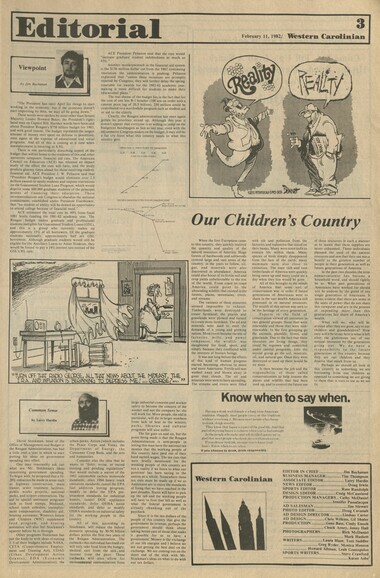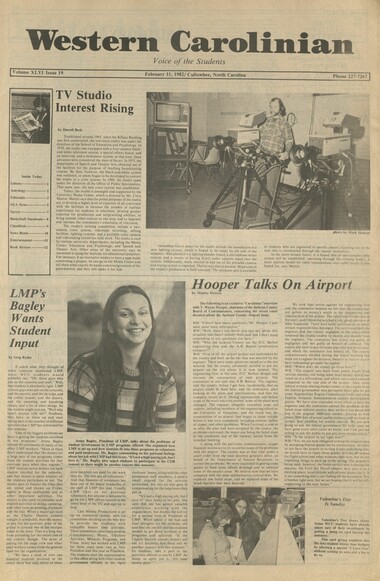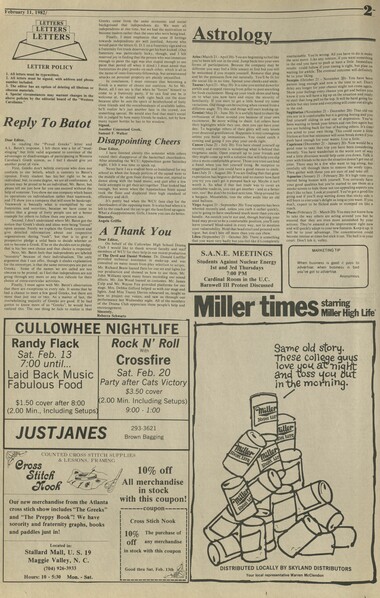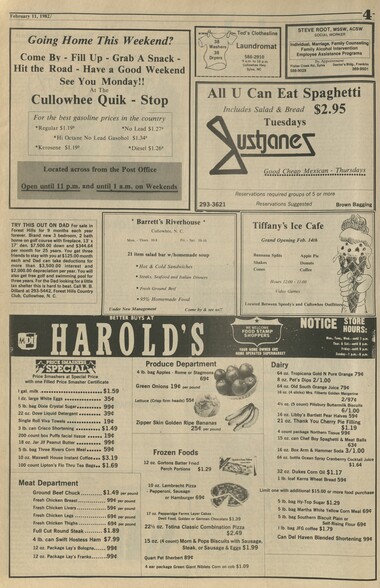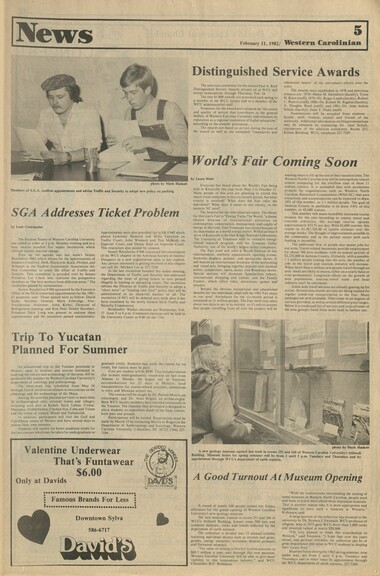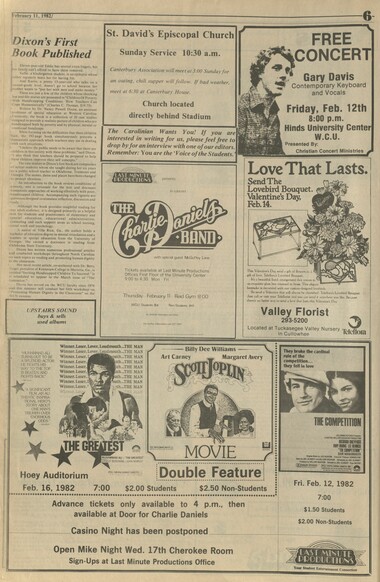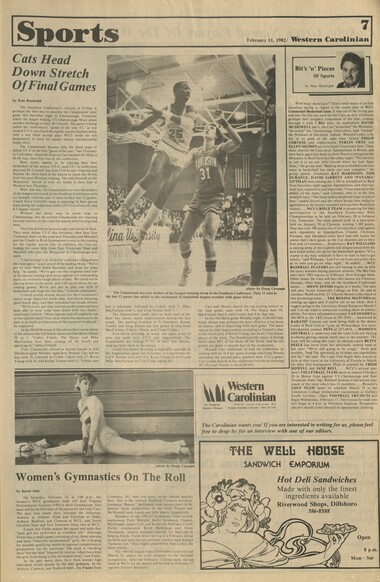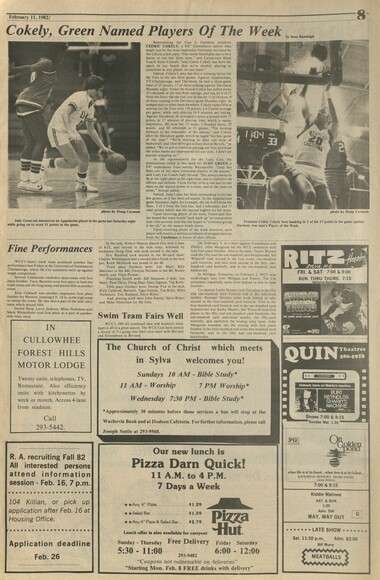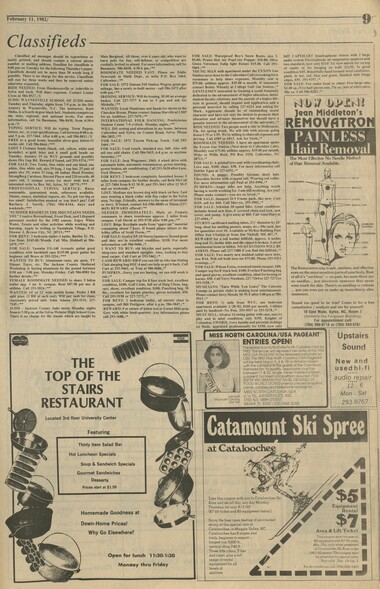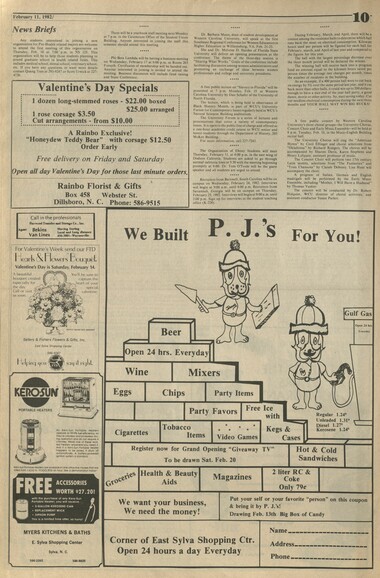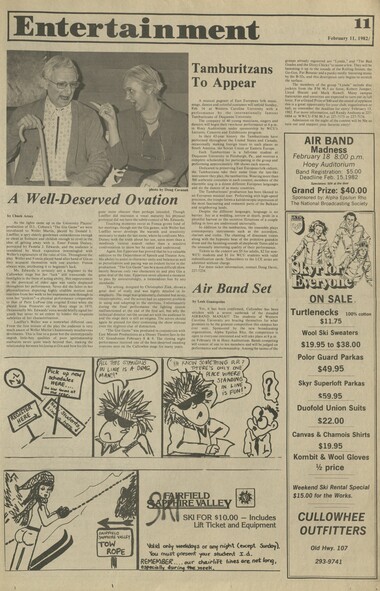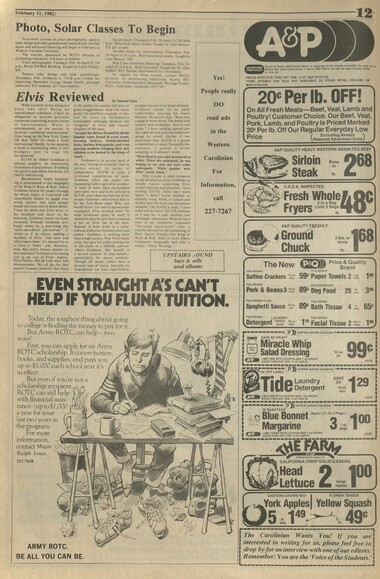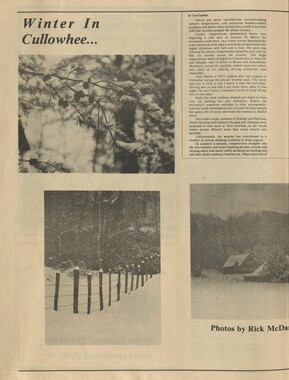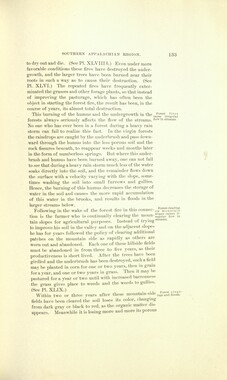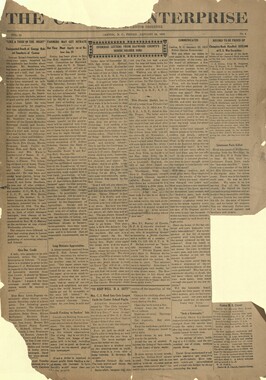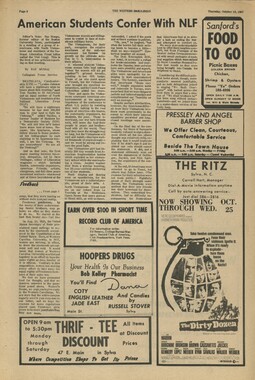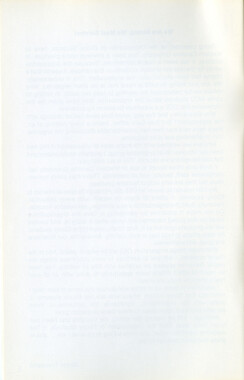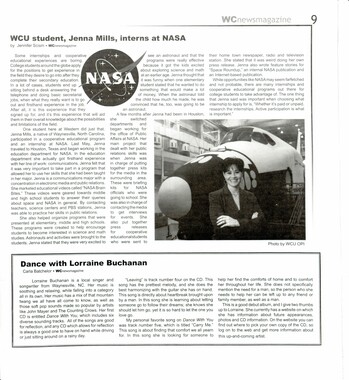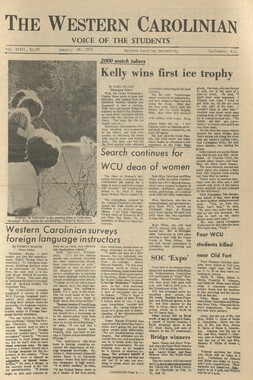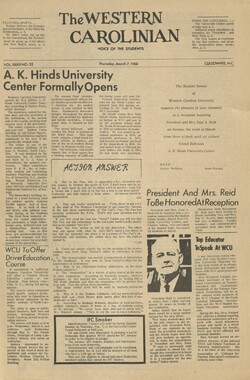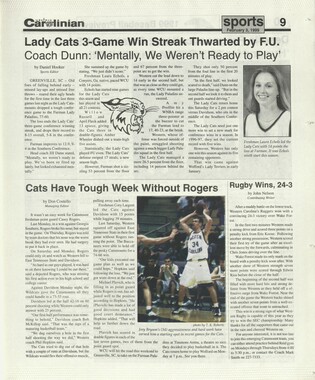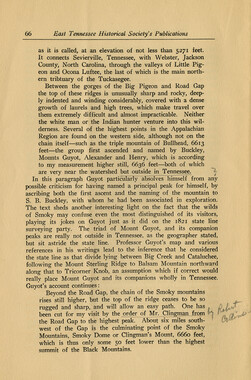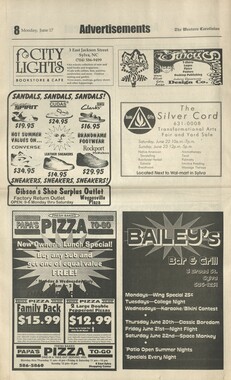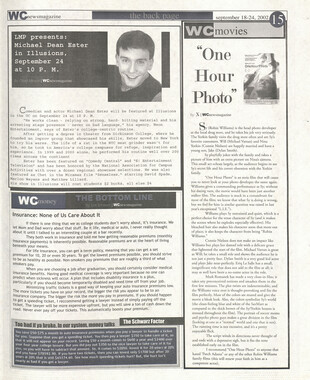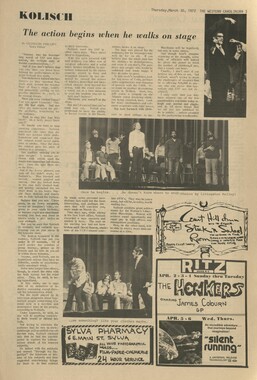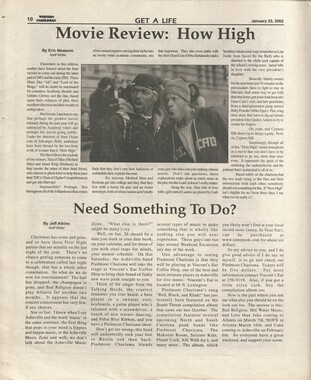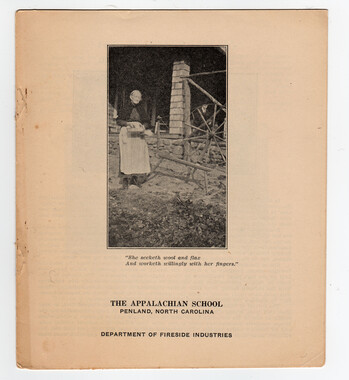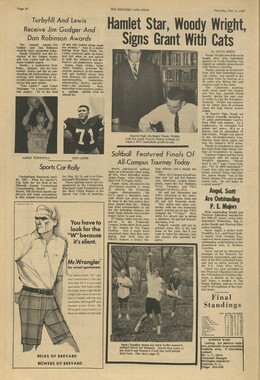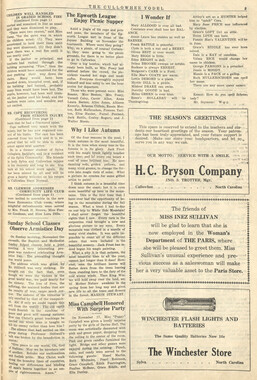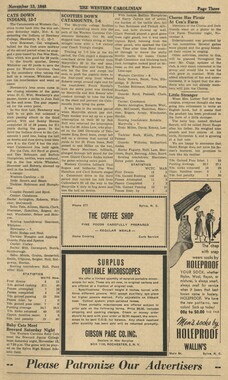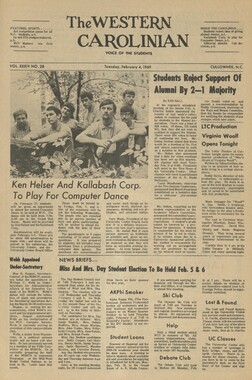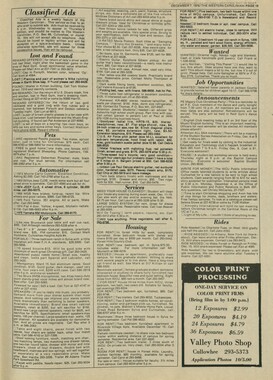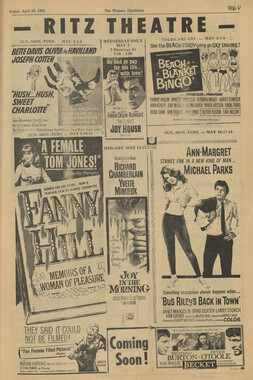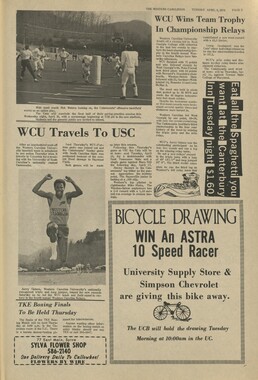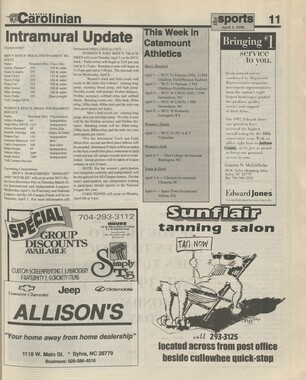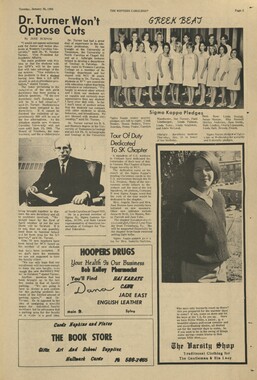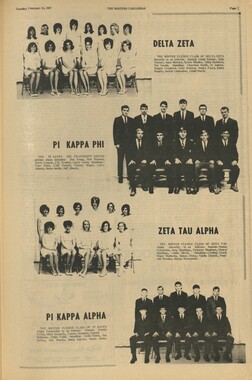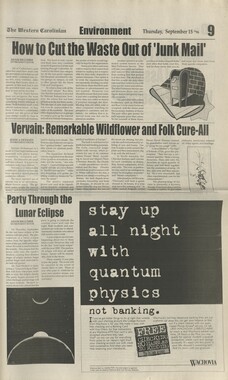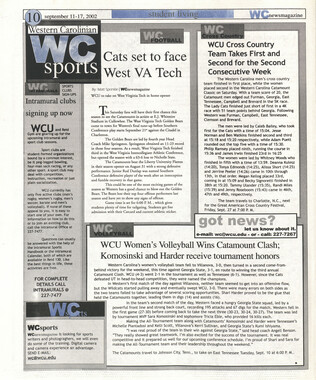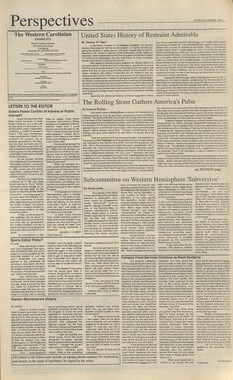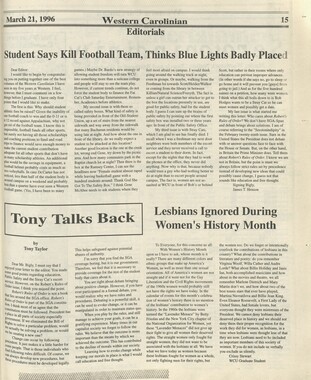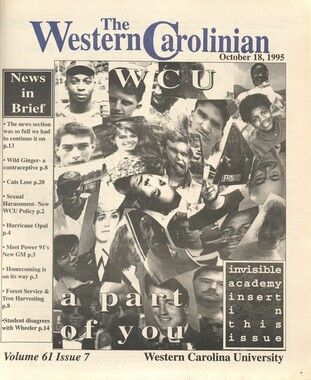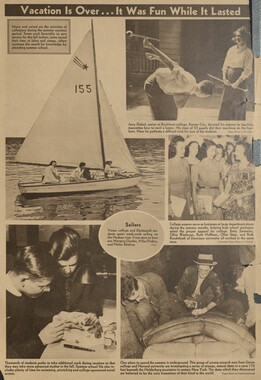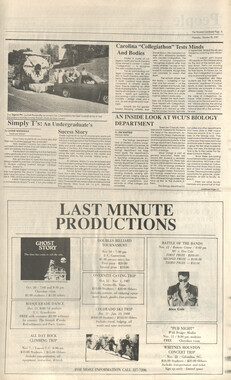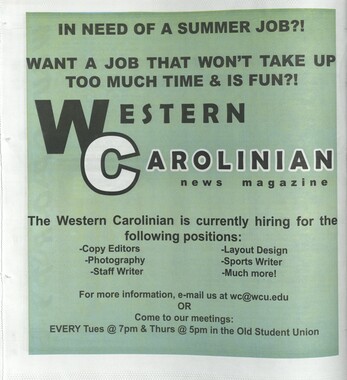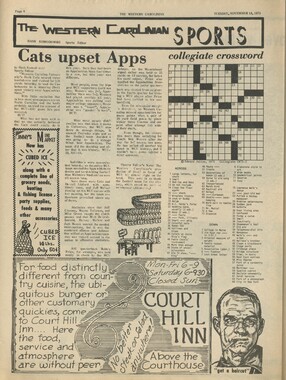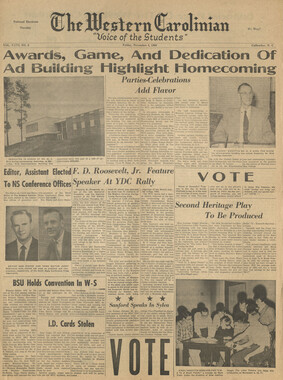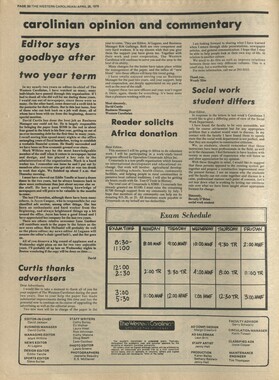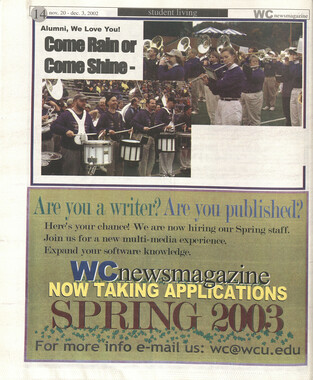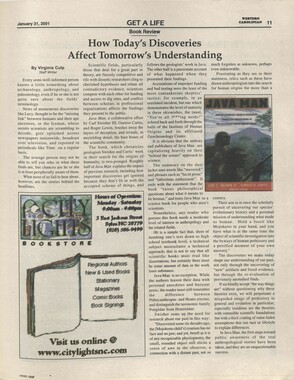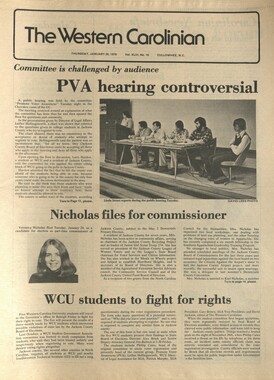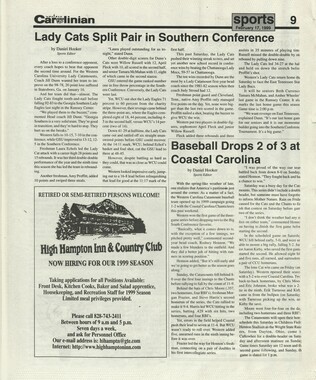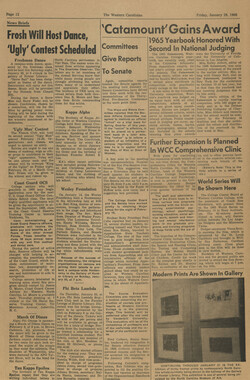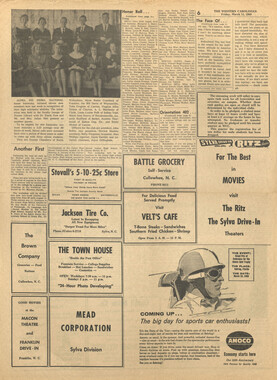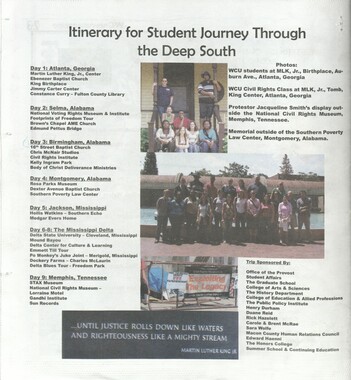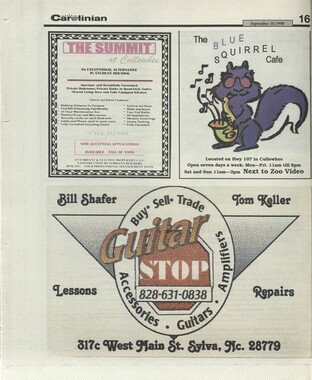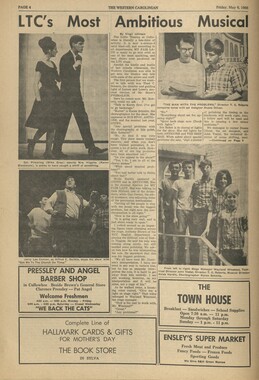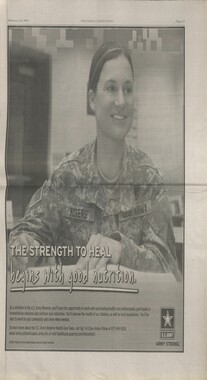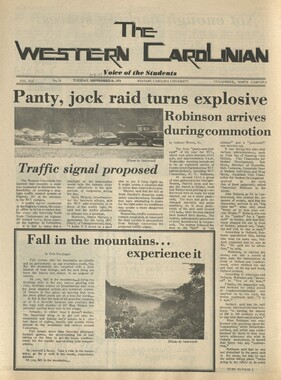Western Carolina University (21)
View all
- Canton Champion Fibre Company (2308)
- Cherokee Traditions (291)
- Civil War in Southern Appalachia (165)
- Craft Revival (1942)
- George Masa Collection (137)
- Great Smoky Mountains - A Park for America (3080)
- Highlights from Western Carolina University (422)
- Horace Kephart (973)
- Journeys Through Jackson (159)
- LGBTQIA+ Archive of Jackson County (89)
- Oral Histories of Western North Carolina (318)
- Picturing Appalachia (6617)
- Stories of Mountain Folk (413)
- Travel Western North Carolina (153)
- Western Carolina University Fine Art Museum Vitreograph Collection (129)
- Western Carolina University Herbarium (92)
- Western Carolina University: Making Memories (738)
- Western Carolina University Publications (2491)
- Western Carolina University Restricted Electronic Theses and Dissertations (146)
- Western North Carolina Regional Maps (71)
- World War II in Southern Appalachia (131)
University of North Carolina Asheville (6)
View all
- Allanstand Cottage Industries (62)
- Appalachian National Park Association (53)
- Bennett, Kelly, 1890-1974 (1463)
- Berry, Walter (76)
- Brasstown Carvers (40)
- Carver, George Washington, 1864?-1943 (26)
- Cathey, Joseph, 1803-1874 (1)
- Champion Fibre Company (233)
- Champion Paper and Fibre Company (297)
- Cherokee Indian Fair Association (16)
- Cherokee Language Program (22)
- Crowe, Amanda (40)
- Edmonston, Thomas Benton, 1842-1907 (7)
- Ensley, A. L. (Abraham Lincoln), 1865-1948 (275)
- Fromer, Irving Rhodes, 1913-1994 (70)
- George Butz (BFS 1907) (46)
- Goodrich, Frances Louisa (120)
- Grant, George Alexander, 1891-1964 (96)
- Heard, Marian Gladys (60)
- Kephart, Calvin, 1883-1969 (15)
- Kephart, Horace, 1862-1931 (313)
- Kephart, Laura, 1862-1954 (67)
- Laney, Gideon Thomas, 1889-1976 (439)
- Masa, George, 1881-1933 (61)
- McElhinney, William Julian, 1896-1953 (44)
- Niggli, Josephina, 1910-1983 (10)
- North Carolina Park Commission (105)
- Osborne, Kezia Stradley (9)
- Owens, Samuel Robert, 1918-1995 (11)
- Penland Weavers and Potters (36)
- Roberts, Vivienne (15)
- Roth, Albert, 1890-1974 (142)
- Schenck, Carl Alwin, 1868-1955 (1)
- Sherrill's Photography Studio (2565)
- Southern Highland Handicraft Guild (127)
- Southern Highlanders, Inc. (71)
- Stalcup, Jesse Bryson (46)
- Stearns, I. K. (213)
- Thompson, James Edward, 1880-1976 (226)
- United States. Indian Arts and Crafts Board (130)
- USFS (683)
- Vance, Zebulon Baird, 1830-1894 (1)
- Weaver, Zebulon, 1872-1948 (58)
- Western Carolina College (230)
- Western Carolina Teachers College (282)
- Western Carolina University (2008)
- Western Carolina University. Mountain Heritage Center (18)
- Whitman, Walt, 1819-1892 (10)
- Wilburn, Hiram Coleman, 1880-1967 (73)
- Williams, Isadora (3)
- Cain, Doreyl Ammons (0)
- Crittenden, Lorraine (0)
- Rhodes, Judy (0)
- Smith, Edward Clark (0)
- Appalachian Region, Southern (3032)
- Asheville (N.C.) (1945)
- Avery County (N.C.) (26)
- Blount County (Tenn.) (195)
- Buncombe County (N.C.) (1680)
- Cherokee County (N.C.) (283)
- Clay County (N.C.) (556)
- Graham County (N.C.) (238)
- Great Smoky Mountains National Park (N.C. and Tenn.) (525)
- Haywood County (N.C.) (3573)
- Henderson County (N.C.) (70)
- Jackson County (N.C.) (4925)
- Knox County (Tenn.) (35)
- Knoxville (Tenn.) (13)
- Lake Santeetlah (N.C.) (10)
- Macon County (N.C.) (421)
- Madison County (N.C.) (216)
- McDowell County (N.C.) (39)
- Mitchell County (N.C.) (135)
- Polk County (N.C.) (35)
- Qualla Boundary (982)
- Rutherford County (N.C.) (78)
- Swain County (N.C.) (2185)
- Transylvania County (N.C.) (270)
- Watauga County (N.C.) (12)
- Waynesville (N.C.) (86)
- Yancey County (N.C.) (72)
- Aerial Photographs (3)
- Aerial Views (60)
- Albums (books) (4)
- Articles (1)
- Artifacts (object Genre) (228)
- Bibliographies (1)
- Biography (general Genre) (2)
- Cards (information Artifacts) (38)
- Clippings (information Artifacts) (192)
- Copybooks (instructional Materials) (3)
- Crafts (art Genres) (622)
- Depictions (visual Works) (21)
- Design Drawings (1)
- Digital Moving Image Formats (2)
- Drawings (visual Works) (185)
- Envelopes (101)
- Exhibitions (events) (1)
- Facsimiles (reproductions) (1)
- Fiction (general Genre) (4)
- Financial Records (12)
- Fliers (printed Matter) (67)
- Glass Plate Negatives (381)
- Guidebooks (2)
- Internegatives (10)
- Interviews (823)
- Land Surveys (102)
- Letters (correspondence) (1045)
- Manuscripts (documents) (618)
- Maps (documents) (177)
- Memorandums (25)
- Minutes (administrative Records) (59)
- Negatives (photographs) (6090)
- Newsletters (1290)
- Newspapers (2)
- Notebooks (8)
- Occupation Currency (1)
- Paintings (visual Works) (1)
- Pen And Ink Drawings (1)
- Periodicals (194)
- Personal Narratives (10)
- Photographs (12977)
- Plans (maps) (1)
- Poetry (6)
- Portraits (4568)
- Postcards (329)
- Programs (documents) (181)
- Publications (documents) (2444)
- Questionnaires (65)
- Relief Prints (26)
- Sayings (literary Genre) (1)
- Scrapbooks (282)
- Sheet Music (2)
- Slides (photographs) (402)
- Songs (musical Compositions) (2)
- Sound Recordings (802)
- Specimens (92)
- Speeches (documents) (18)
- Tintypes (photographs) (8)
- Transcripts (329)
- Text Messages (0)
- A.L. Ensley Collection (275)
- Appalachian Industrial School Records (7)
- Appalachian National Park Association Records (336)
- Axley-Meroney Collection (2)
- Bayard Wootten Photograph Collection (20)
- Bethel Rural Community Organization Collection (7)
- Blumer Collection (5)
- C.W. Slagle Collection (20)
- Canton Area Historical Museum (2110)
- Carlos C. Campbell Collection (462)
- Cataloochee History Project (64)
- Cherokee Studies Collection (4)
- Daisy Dame Photograph Album (5)
- Daniel Boone VI Collection (1)
- Doris Ulmann Photograph Collection (112)
- Elizabeth H. Lasley Collection (1)
- Elizabeth Woolworth Szold Fleharty Collection (4)
- Frank Fry Collection (95)
- George Masa Collection (173)
- Gideon Laney Collection (452)
- Hazel Scarborough Collection (2)
- Hiram C. Wilburn Papers (28)
- Historic Photographs Collection (236)
- Horace Kephart Collection (861)
- Humbard Collection (33)
- Hunter and Weaver Families Collection (1)
- I. D. Blumenthal Collection (4)
- Isadora Williams Collection (4)
- Jesse Bryson Stalcup Collection (47)
- Jim Thompson Collection (224)
- John B. Battle Collection (7)
- John C. Campbell Folk School Records (80)
- John Parris Collection (6)
- Judaculla Rock project (2)
- Kelly Bennett Collection (1482)
- Love Family Papers (11)
- Major Wiley Parris Civil War Letters (3)
- Map Collection (12)
- McFee-Misemer Civil War Letters (34)
- Mountain Heritage Center Collection (4)
- Norburn - Robertson - Thomson Families Collection (44)
- Pauline Hood Collection (7)
- Pre-Guild Collection (2)
- Qualla Arts and Crafts Mutual Collection (12)
- R.A. Romanes Collection (681)
- Rosser H. Taylor Collection (1)
- Samuel Robert Owens Collection (94)
- Sara Madison Collection (144)
- Sherrill Studio Photo Collection (2558)
- Smoky Mountains Hiking Club Collection (616)
- Stories of Mountain Folk - Radio Programs (374)
- The Reporter, Western Carolina University (510)
- Venoy and Elizabeth Reed Collection (16)
- WCU Gender and Sexuality Oral History Project (36)
- WCU Mountain Heritage Center Oral Histories (25)
- WCU Oral History Collection - Mountain People, Mountain Lives (71)
- WCU Students Newspapers Collection (1923)
- Western North Carolina Tomorrow Black Oral History Project (69)
- William Williams Stringfield Collection (2)
- Zebulon Weaver Collection (109)
- African Americans (390)
- Appalachian Trail (35)
- Artisans (521)
- Cherokee art (84)
- Cherokee artists -- North Carolina (10)
- Cherokee language (21)
- Cherokee pottery (101)
- Cherokee women (208)
- Church buildings (190)
- Civilian Conservation Corps (U.S.) (111)
- College student newspapers and periodicals (2012)
- Dams (108)
- Dance (1023)
- Education (222)
- Floods (63)
- Folk music (1015)
- Forced removal, 1813-1903 (2)
- Forest conservation (220)
- Forests and forestry (1198)
- Gender nonconformity (4)
- Great Smoky Mountains National Park (N.C. and Tenn.) (181)
- Hunting (47)
- Landscape photography (25)
- Logging (122)
- Maps (83)
- Mines and mineral resources (9)
- North Carolina -- Maps (18)
- Paper industry (38)
- Postcards (255)
- Pottery (135)
- Railroad trains (72)
- Rural electrification -- North Carolina, Western (3)
- School integration -- Southern States (2)
- Segregation -- North Carolina, Western (5)
- Slavery (5)
- Sports (452)
- Storytelling (243)
- Waterfalls -- Great Smoky Mountains (N.C. and Tenn.) (66)
- Weaving -- Appalachian Region, Southern (280)
- Wood-carving -- Appalachian Region, Southern (328)
- World War, 1939-1945 (173)
Western Carolinian Volume 46 Number 19
Item
Item’s are ‘child’ level descriptions to ‘parent’ objects, (e.g. one page of a whole book).
-
-
Editorial Viewpoint by Jim Buchanan "The President has until April for things to start working in the economy...but if the economy doesn't start improving by then, we may all be going down." These words were spoken by none other than Senate Majority Leader Howard Baker, the President's right- hand man on Capitol Hill. Harsher words have been said about President Reagan's $758 billion budget for 1983, and with good reason. The budget represents the largest amount of money ever spent on defense in peacetime, once again at the expense of educational and social programs. And all of this is coming at a time when unemployment is hovering at 8.3 There is one particularly disturbing aspect of the budget that will hit home to the residents of this and other universitv campuses: financial aid cuts. Ihe American Council on Education (ACE) has released an impact study of the effect the cuts will have, and the study predicts gloomy times ahead for those receiving student financial aid. ACE President J. W. Peltason said that "President Reagan's budget would eliminate over 2.3 million awards to needy students and impose restrictions on the Guaranteed Student Loan Program, which would deprive some 600,000 graduate students of the principal means of financing their education....These recommendations ask Congress to abandon the national commitment, established under President Eisenhower, that "no student of ability will be denied an opportunity to attend college because of financial need." ACE estimated the total cuts by 49% from fiscal 1981 levels funding the 1981-82 academic year. The Reagan budget makes graduate and professional students ineligible for Guaranteed Student Loans(GSL), and this is a group who currently makes up approximately 15% of all borrowers. Of the graduate students nationally, approximately half are GSL borrowers. Although graduate students would still be eligible for the Auxiliary Loans to Assist Students, they would be forced to pay a 14% interest rate instead of the GSL's 9% rate.. ACE President Peltason said that the cuts would "increase graduate student indebtedness as much as 67%." Another monkeywrench in the financial aid system is the S136 million dollar cut from the 1982 continuing resolution the administration is pushing. Peltason explained that "unless these recissions are promptly rejected by Congress, they will further delay the spring timetable for awards for the 1982-83 academic year, making it more difficult for students to make their educational plans." The real shame of the budget lies in the fact that for the cost of one less B-l bomber (100 are on order with a current price tag of 20.5 billion), 250 million could be contributed to a worthwhile program such as student aid or aid to the elderly. Clearly, the Reagan administration has once again gotten its priorities mixed up. Although this year it doesn't appear that eseryone is as willing to jump on the budgetcut bandwagon as last as last year, even with the adjustments Congress makesonthebudget.it may still be a tar cry from what this country needs to what this country gets C .II.,. CMN '• I.J... t___» A"< Apfrefti.li-n n 7S n lo FY It n 12 n Is ,..l«|. . ...I ... t .!>.,. Mli.J..... I.'.I I.O.r.1 Appiupii.i.un. I..i ■ ■... !....<. ..'J I tm*i. k.»d 4.1 .Milan UcoociIj.tion Act C.I I S3.3 bill Is. (Continuing n«»oluilon) SI .8 bill Ion (It.*,an rtau.lt I *TURN OFF TMKT RADIO GEORGE, M.TOT \Wb ABOUT1* NW6T, TU£„ I.PA. AND \NH£im IS BE61NNMS& TO PfcPCkSS ME/..» GB0BS£?»>.. " Common Sense by Larry Hardin David Stockman, head of the Office of Management and Budget in the Reagan Administration, has had a little over a year in which to start putting his ideas on government spending into effect. One may reasonably ask just what are Mr. Stockman's ideas concerning government spending. To begin with, he proposed that a 10- 20P reduction be made in areas such as highway construction, mass transit, sewer treatment, facilities, public works projects, national parks, and airport construction. The aid to special assistance programs such as food stamps, Medicaid, school lunch subsidies, unemployment compensation, disability aid. housing assistance. Women's Infant and Children (WIC) supplement food program, and heating assistance will also feel Stockman's squeeze before he is through. Other programs Stockman has put the knife to with ideas of cutting 1/3 of their budgets include NASA, CETA (Comprehensive Employment and Training Act), UDAG (Urban Development Action Grants), EDA (Economic Development Administration), the urban parks. Action (which includes the Peace Corps and Vista), the Department of Energy, the Consumer Coop Bank, and the arts and humanities. Consider also the idea that he wants to "defer, revise, or recind existing and pending regulations" that would include a waiver of the 1982 automobile carbon monoxide standards, relax 1984 heavy truck emissions standards, cancel the EPA fuel additives testing pjogram, modify or defer the EPA pre- treatment standards for industrial wastes, cancel DOE appliance standards, defer OSHA noise standards, and defer or modify OSHA standards on industrial safety for the working people in this country. All of this, according to Stockman, will reduce the federal domestic spending by 30-50 billion dollars within the first two years of the Reagan Administration. The cutbacks this individual has lined out will only take food from the hungry, medical care from the sick, and income from the poor. These cutbacks will also allow for environmental contamination from large industrial concerns and worker safety to become the concern of the worker and not the company he/she will work for. More people, the old in particular, will die in larger numbers from lack of heat in the winters; parks, libraries and cultural programs will also suffer. The list goes on and on, but the point being made is that the Reagan Administration is anti-people in letting this man have the national tax monies that the working people of this country have paid out of their hard earned wages. The tax cuts that were briefly mentioned for the working people of this country are not a reality if we listen to what our governor has been saying to the nation as a whole. Somewhere these tax cuts must be made up if we as Americans are to enjoy the standards of living that we have reached in the past decades. States will have to pick up the tab and the working people will have to foot that bill as well as what the federal government is already chunking out of the paycheck. Since it is the tax dollars of the people of this country that give the government its revenue, perhaps the government should think about taking better care of those that make it possible for us to have a government. Money is the exchange of our life energies and I believe we are not getting the best deal on the exchange. We are coming out on the short end of the stick with Mr. Stockman's ideas on what to do with our tax dollars. Our Children's Country When the first Europeans came to this country, they quickly realized the quantity and quality of the natural resources of America. Huge forests of hardwoods and softwoods covered large and vast areas of the country; in the years to follow, oil, gas, and minerals were also discovered in abundance. America could also boost of its fertile soil and crop yields unbelieveable to the rest of the world. From coast to coast America could point to the abounding wildlife that existed in the forests, plains, mountains, rivers, and streams. The vastness of these resources seemed impossible to exhaust. Timberlands were destroyed to create farmland; the praries and grasslands were plowed and turned to create more farmland. The oil and minerals were used to meet the demands of a young and growing nation. M ost rivers became the site of factories, mills, and power companies, the wildlife was slaughtered for food, sport, and simply because they conflicted with the interests of human beings. It was not long before the effects of this kind of human progress started becoming obvious to more and more Americans. Fertile soil was washed away and blown away in great dust clouds. The oil and minerals were seen to have an ending. The streams and rivers were filled with silt and pollution from the factories and industries that stood on their banks. Many were soon unfit to contain life within them. Many species of birds simply disappeared from the face of the earth; many mammals were also close to extinction. The once rich and vast timberlands of America were quickly being eaten up and many could see a day when they too would be gone. All of this brought to the minds of America that some sort of conservation was in order if future generations of Americans were to share in the vast wealth America still possessed in its natural resources. The wealth of this nation was seen to be the heritage of every generation. Experts in the field of conservation viewed all resources in- two general groups: those that were renewable and those that were nonrenewable. In the first grouping go the animals, plantlife, forest, and grasslands. Due to the fact that these resources are living things, they could be regrown and controlled under careful programs. Into the second group go the soil, minerals, oil, and natural gas. Once they were destroyed or used up there would be no more. It then became the job and the responsibility of those called conservationists to help restore the plants and wildlife that had been used up, and to control the future use of these resources in such a manner as to insure that these supplies are never exhausted. These- individuals planned the used of the natural resources and saw that their use was a benefit to the greatest number of people in their generation as well as future generations of America. In the past two decades the term conservationist has become a household word, and should rightly be so. What past generations of Americans have worked for should not be undone by the greed of any single generation of Americans. It seems evident that there are some in the seats of power that do not share this viewpoint and are in the process of expending more than this generations fair share of America's wealth. What will we, who will be around after they are gone, say to our children and grandchildren? How easy will it be to say here is what is left after the gluttonous use of our natural resources by the generation going out. We do have a responsibility tja the future generations of this country because they are our children and they deserve that much from us. Perhaps we should all look at this country as something we are borrowing from our children as opposed to something we are giving to them that is ours to use as we see fit. Know when to say when, Having a dunk with friends is a long-time American tradition. Happily, must people cany on this tradition without overdoing it. Because most people whochoowe to drink, drink sensibly They know that liquid isa part of the good life. And that part of enjoying liquoi is to know when you've had enough. As the people who make and sell distilled spuits. we're clad that most people who ill ink do mi with moderation If you choose to drink, we nice vou to know vour limits. Know when t'usnv when It you choose to drink, drink responsibly. Western Carolinian EDITOR IN CHIEF Jim Buchanan BUSINESS MANAGER Tim Thompson ASSOCIATE EDITOR Larry Hardin NEWS EDITOR Doug Irwin SPORTS EDITOR Russ Randolph DESIGN EDITOR Craig McCausland PRODUCTION MANAGERS.. Cathy McDaniel Jennifer Passalacqua AD SALESMAN Jim Stewart PHOTO EDITOR Doug Cavanah AD DESIGN DIRECTOR Lindsay Carter AD DESIGN Chris Wilkins, Gil Shuler PRODUCTION Gene Bass, Cindy Enoch Chuck Arney, Jenny Hall PHOTOGRAPHERS Rick McDaniel Mark Haskett WRITERS Laura Hunt. Toni Saddler Greg Ryder, Monica Henson Howard Allman. Leah Geanopulos SPORTS WRITERS Steve Crawford Karen Ashe'
Object
Object’s are ‘parent’ level descriptions to ‘children’ items, (e.g. a book with pages).
-
The Western Carolinian is Western Carolina University's student-run newspaper. The paper was published as the Cullowhee Yodel from 1924 to 1931 before changing its name to The Western Carolinian in 1933.
-
